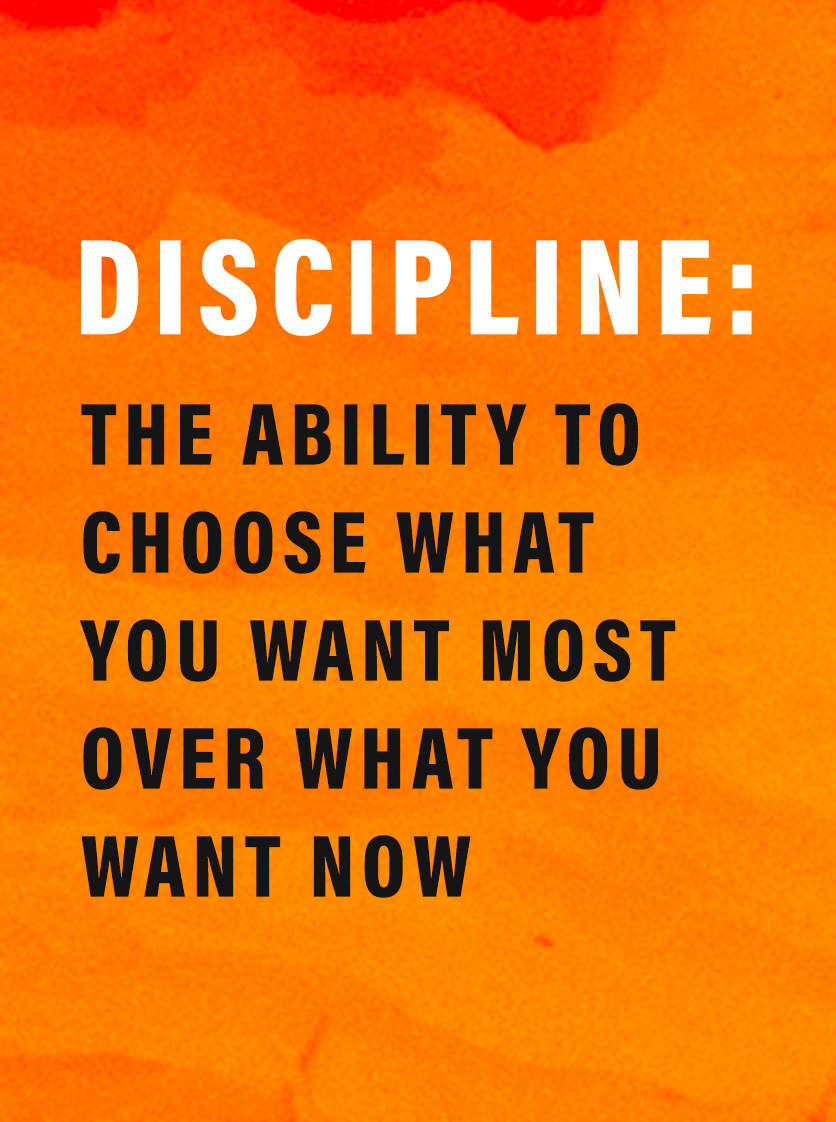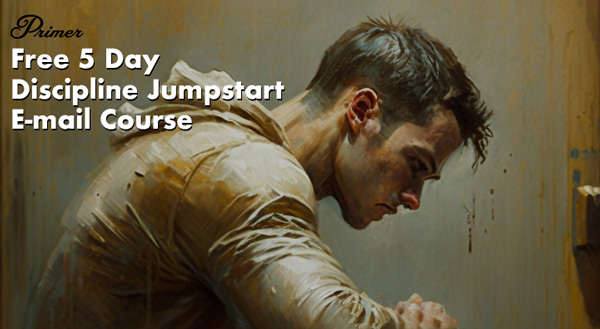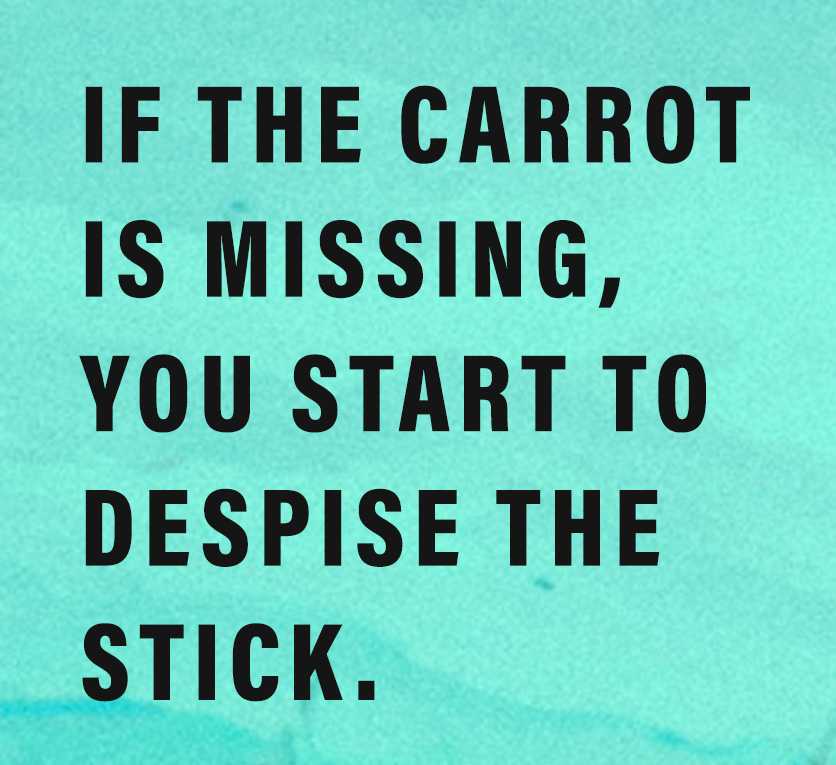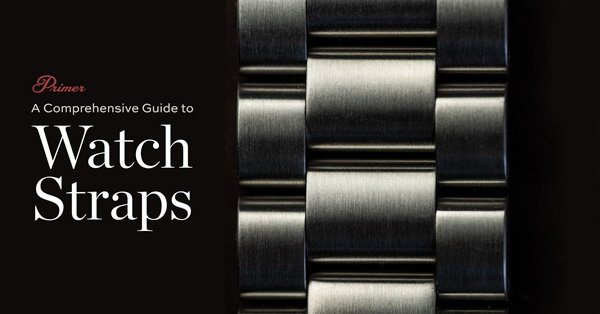Discipline is one of life’s true cheat codes.
“It doesn’t matter whether you are pursuing success in business, sports, the arts, or life in general: The bridge between wishing and accomplishing is discipline.” – Harvey Mackay
Motivation fades. Willpower is finite. Good intentions only last for so long.
But discipline lets you do what you have to do even if you don’t want to, day after day.
Studies show disciplined people are happier because they achieve their goals – it makes the difference between…
- Watching your belly fat jiggle and using your abs as a washboard
- Getting stuck in a dead-end job and enjoying a fulfilling career
- Staying calm in an argument and saying things you regret later
Discipline = The ability to choose what you want most over what you want now
However, most people assume you either have discipline or you don’t, which is as far from the truth as a fish from climbing a tree.
Discipline is a skill anybody can learn – if you know how to.
I went from a lazy student sleeping until 1 pm every day to competing in a bodybuilding competition, building my own business, and racking up 300+ day meditation streaks.
Steal my strategies and build iron discipline the smart way.
#1: Use the Power of Identity Change
Most people underestimate the power of small steps over time.
Humans value immediate rewards more than future ones. Instant gratification makes our brains go brrrr.
But this impatience often leads to overwhelm.
Every January, New Year’s resolutioners flood my local gym. They sweat, grunt, and chug protein shakes five times a week. But come February, they lost their motivation – and the lifting platforms are empty again.

Pushing yourself too hard in the beginning only leads to burnout because building discipline is a marathon, not a sprint.
James Clear, author of the NYT bestseller Atomic Habits and a newsletter with over 1 million subscribers, calls this identity change.
Instead of aiming sky-high and crashing hard, take these small steps:
- Turn the water to cold for five seconds at the end of your shower
- Take the stairs instead of the elevator
- Go to bed and wake up half an hour earlier
- Have one healthy snack per day instead of inhaling French fries
- Read for ten minutes before watching Netflix
“Every action you take is a vote for the type of person you wish to become.” – James Clear
Every time you delay instant gratification, you see yourself as more of a disciplined person, which makes it easier to act like one.
#2: Make Your Environment Work For You
“I can resist anything except temptation.” – Oscar Wilde
Your environment influences you, but you can choose how.
In a devilish experiment, social psychologist Roy Baumeister called people into a room with freshly baked cookies. The first group of people could snack on the goodies, the second had to eat horseradish instead. Then, the real experiment came.
In the next room, the participants had to solve a persistence-testing puzzle.
The cookie people tried for much longer than the unlucky bastards who had to snack on rabbit food.
The implication?
Willpower is a finite resource and the wrong environment can take away huge chunks of it.
Instead of playing the discipline game on hard mode, use these tweaks to make it easier for yourself:
- Hide the fast junk food and put out healthy snacks on the kitchen counter
- Store the TV remote in a drawer and keep a book on the coffee table
- Put your phone in a different room while you work
- Place a pack of bottled water next to your desk so it’s effortless to drink more
- Place your alarm away from your bed so you have to get up
- Set a reminder to move for five minutes every hour
This is one of the easiest discipline hacks I know, which is why I’ve applied it hundreds of times over the years.
Do the same and watch your discipline skyrocket.
Sign up for our FREE Discipline Jumpstart e-mail course:

5 days of actionable and easy to implement techniques for building a more disciplined routine FAST.
#3: Use the Clarity of Specific Goals
Airy-fairy goals lead to airy-fairy results.
Saying, “I’ll be more disciplined/I’ll read more books/I’ll work harder”
is a well-meant recipe for disaster. Without specific actions, you’re much more likely to say “I’ll do it tomorrow.” But that tomorrow never comes.
So what’s the solution?
Specific goals.
In an eye-opening Harvard study, people who set specific goals were almost three times more likely to achieve them than the ones who didn’t. Instead of kicking the can down the road and making excuses, they had a time and place to make it happen.
Use this implementation intention to do the same:
I will [BEHAVIOR] at [TIME] in [LOCATION].
- I will meditate for 10 minutes at 7 am on my couch.
- I will work out for one hour at the gym right after I finish work.
- I will grow my side gig for two hours every Saturday morning.
This is known as a S.M.A.R.T. Goal, which is one that is Specific, Measurable, Attainable, Relevant, and Time-based.
I’ve used this technique to meditate every morning for two years in a row.
The effort/reward ratio is insane. Write down a simple sentence. Tape it to your fridge or your forehead – wherever you can see it. Follow up and get it done.
Boom, watch yourself become more disciplined by the day.
#4: Use Your Brain Chemistry Strategically
If discipline makes you feel miserable, you’re doing it wrong.
Yes, delaying instant gratification is hard.
No, it shouldn’t feel like Chinese water torture.
As a teenager, my grandma pushed me to study hard. I was ambitious, but if the carrot is missing, you start to despise the stick.
If you never reward yourself, you develop resistance to what you’re doing. You start questioning yourself – “why the heck do I even put up with this if it makes me miserable?”
The payoffs of discipline can take a long time to manifest. In the meanwhile, you have to reward yourself to keep your spirits high. This…
- Gives you confidence
- Makes you feel like you’re on the right track
- Helps you build discipline because your brain releases dopamine, which strengthens the connections in your learning and memory center, the hippocampus
Your rewards can be tangible like a nice dinner, a new jacket, or treating yourself to a massage. Or, you can write down your accomplishments and celebrate the feeling. Either way, make the experience positive and you’ll build discipline much quicker.

#5: Use the Simplicity of the “Two Strikes Rule”
You’re a human, not a robot, so treat yourself like one.
It ain’t easy to find the golden middle between pushing hard and letting yourself go. The former leads to burnout, the latter keeps you lazy. You can achieve balance with a simple rule.
Never miss twice.
Look, slip-ups are going to happen no matter what – but how you deal with them makes all the difference.
Instead of thinking you’re a lazy loser, show compassion for yourself and make sure it doesn’t happen again the next day.
This makes enough room for mistakes without letting them take over.
The best thing? A 2009 study has shown messing up once from time to time doesn’t significantly affect the formation of new habits and behaviors. So breathe easy.
If you missed your goal for the day, your new goal is to make sure you don’t miss it the next day.
Discipline is a long-term game, play it accordingly.
→ Sign up for our FREE Discipline Jumpstart 5 day e-mail course.
Summary To Help You Become More Disciplined
The best things in life require you to sacrifice instant gratification for long-term benefits.
Discipline is the skill that helps you do that.
Use these five strategies to build it, one day at a time:
- Use the power of identity change.
- Use the influence of your environment.
- Use the clarity of specific goals.
- Use your brain chemistry strategically.
- Use the simplicity of the two strikes rule.
“Learning to effectively lead yourself and others all comes down to discipline. Happiness, success, and fulfillment stem from focus and self-control. It may be hard to believe when you’re facing an all-you-can-eat buffet, the prospect of making a quick buck, or the lazy lure of sleeping in versus getting on the Peloton, but studies show that people with self-discipline are happier. Why? Because with discipline and self-control we actually accomplish more of the goals we truly care about. Self-discipline is the bridge between goals defined and goals accomplished.” – Akira Sasaki















![It’s Time to Begin Again: 3 Uncomfortable Frameworks That Will Make Your New Year More Meaningful [Audio Essay + Article]](https://www.primermagazine.com/wp-content/uploads/2025/01/begin_again_feature.jpg)